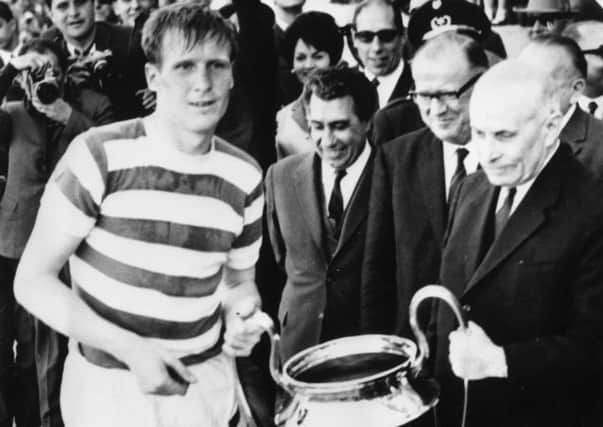Aidan Smith: Why BT's new Champions League deal is bad news


The very next day in May I had the knowledge and, what’s more, the passion. Like many Scots of my generation, I trace my love of the game back to that European Cup triumph in Lisbon, a match which entranced on the goggle-box – for free.
If that was the beginning for many, then, a couple of months shy of the anniversary, the end is looming. Football’s greatest club tournament is coming off terrestrial television. ITV, no longer allowed to screen live games, had clung on to a highlights programme. Now that’s to go, too.
Advertisement
Hide AdAdvertisement
Hide AdBT Sport has grabbed the lot because it wanted everything. Unashamedly, the satellite broadcaster had been seeking to create a one-party state. “My preference was very much to have taken the rights exclusively,” said chief executive John Petter of the £1.18 billion deal with Uefa, “and it is now truly exclusive as opposed to being partly shared with ITV.”
What’s the problem here? Aren’t we all middle-class now? Aren’t we all satellite viewers now? Well, no and no. Most of my friends – some big football fans – don’t have BT Sport or Sky. I tell my wife I need both for work purposes but don’t know, with BT seriously upping its charges, how long I’m going to get away with this argument. Indeed I don’t know if I believe it myself anymore.
Champions League football has become increasingly remote from the game in Scotland and a few other places besides. Once there was a great communality to the competition – back when it was the European Cup, live televised football was rare and being able to see the best two teams on the continent play out the final was a privilege. Now, watching as a Scot, you feel like you’re peeking through the keyhole at some elite private members’ club made up of never-changing teams who distribute the tournament’s riches, and that big cup, amongst each other. Maybe, you think, you should just leave them to their Gazprom and their Heineken and their strolling, smug version of football.
Except Scots have a bond with the competition which goes beyond that unforgettable night in 1967 when McNeill heaved the trophy above his head. Seven years before, Hampden had hosted the classic Real Madrid-Eintracht Frankfurt final, regarded by those who witnessed it as the greatest match ever played. Four seasons previous to that, with the insular English FA sneeringly suspicious of getting involved with foreign clubs, Hibernian became the first in Britain to take part.
Before the 1976 final at Hampden, Bayern Munich didn’t endear themselves to Glaswegians by fretting about the Baader-Meinhof Gang. Locals transferred their support to St Etienne and, even if the final wasn’t great, few who enjoyed the extended 3am drinking will forget the post-match. Then in 2002, Hampden again, Zinedine Zidane scored maybe the best-ever goal to win the cup.
Scotland can renew acquaintance with the Champions League by qualifying, of course, but that’s easier said than done with four countries – Spain, Germany, Italy and England – about to command half of the available 32 places. Clubs need a special entry-code to gain admission and now, as of 2018-19, viewers will require subscriptions to watch the games.
BT Sport has pledged to make clips, highlights and both the Champions League and Europa League finals available to watch free on social media. But the broadcaster will surely find resistance here. An older generation of fans will either be unable to afford satellite television or unwilling to watch on digital platforms, possibly both.
Already there is growing resistance towards Champions League football. Viewing figures have fallen off as fans have grown tired of the underwhelming group stages and bored with the same teams competing in knockout.
Advertisement
Hide AdAdvertisement
Hide AdUefa were concerned about the drop since BT Sport took live games away from ITV – but not enough to prevent the new deal happening.
For long enough, Uefa’s over- polishing of the Champions League has seen it cast as the goose which lays the golden egg. Now there must be a sizable risk in broadcasting terms of putting all the eggs in one basket.
Live terrestrial football still pulls in good audiences. The recent Manchester United-Wigan Athletic FA Cup tie attracted 5.3 million viewers – more than ten times as many as tuned in for Sutton United vs Leeds United on BT Sport.
Televised football’s new, young hotshot has made a big impact since arriving on the scene, much of it good. But everyone needs competition. In the Champions League, at least Real Madrid have got Bayern Munich. Up in the TV gantries now, BT Sport is on its own. For its sake, the broadcaster better not get flabby and complacent.